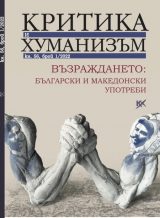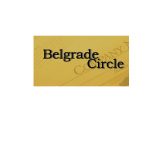Now that “normalization” has come to seem a fact in post-communist eastern Europe, it might be asked why the word “normal” was so close to people’s hearts. How does its meaning in the context of transition compare to western usages of the word? A Begriffsgeshichte of the concept of “normality” reveals meanings that are multiple, historically changeable, contradictory, even oxymoronic.
Alexander Kiossev
teaches cultural history of modernity at the University of Sofia. He was a lecturer in Bulgarian language and literature at the University of Göttingen, Germany. Since 1989 he has been a member of the research group Periphery investigating the Western images of the eastern changes. In the period between 1995 and 199 he was the leader of the group project Creation and Destruction of Symbolic World of Communism. Form 1987 to 1989 he was leader of the group Synthesis, an interdisciplinary and oppositional group of young artists, writers, academics, and students. His publications include a book on the history of Bulgarian poetry and many theoretical essays. He is the editor of
Articles
Writing in an issue of Critique & Humanism on social philosopher Axel Honneth, Alexander Kiossev argues that Honneth omits an analysis of social stigmatization at a pre-discursive level – that of the gaze and perception. Minimal recognition of distinction is a premise of interaction; its failure represents an elementary cause of moral injury.
Alexander Kiossev attempts a cognitive mapping of the multiple, fragmented Balkan identies. Who recognizes himself as Balkan and what customary practices are supposed to reveal a “Balkan communality”? To what extent have the Balkans been constructed as a negative mirrordiscourse to a European identity?
Looking at the history and current situation of the Bulgarian universities vis-a-vis the ideals at the basis of the Humboldtian University, Alexander Kiossev finds that the debate about the role and responsibility of the University needs to be opened up again – and that this debate should not be limited to Bulgaria alone.

